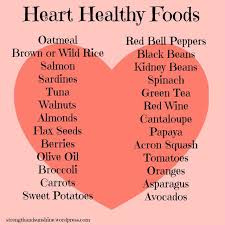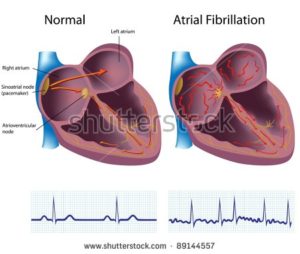
Diagnosed with Cancer? Your two greatest challenges are understanding cancer and understanding possible side effects from chemo and radiation. Knowledge is Power!
Learn about conventional, complementary, and integrative therapies.
Dealing with treatment side effects? Learn about evidence-based therapies to alleviate your symptoms.
Click the orange button to the right to learn more.
- You are here:
- Home »
- Blog »
- Healthy Living Products »
- Congestive Heart Failure- Integrative Therapy
Congestive Heart Failure- Integrative Therapy

“The results indicate that addition of taurine to conventional therapy is safe and effective for the treatment of patients with congestive heart failure.”
I am a long-term cancer survivor. Cardiotoxic chemotherapies taken during my conventional cancer treatment in 1995 caused a late stage side effect called chemotherapy-induced cardiomyopathy as well as atrial fibrillation approximately fifteen years later.
When the cardiologist explained my diagnosis to me there was no discussion of evidence-based non-conventional heart therapies such as:
- moderate exercise
- nutrition
- supplementation, etc.
my doctor simply prescribed metroprolol. To be clear, I have nothing against heart meds. There are many FDA approved heart therapies and many people live much longer than they would otherwise.
I had a reaction to metoprolol and after years of struggling with the short, long-term and late stage side effects from my conventional cancer therapies, I decided to research evidence-based non-conventional heart therapies.
The study linked and excerpted below talks about taurine synergizing with conventional heart meds to make these medications work more effectively.
I take exercise daily (moderately) and take taurine, CoQ10, omega-3 fatty acids, cacao powder, eat little red meat all in an effort to manage my cardiomyopathy so that I do not have to add conventional heart medications to my regimen.
My non-conventional heart therapies have worked well since my diagnosis in 2010. The post I wrote about chemotherapy-induced cardiomyopathy explains those heart metrics that have stabilized and those that have improved.
My point is that there is much more to heart therapies than conventional heart medications. Many of which come with side effects. Consider integrative therapies or complementary therapies.
Have you been diagnosed with chemotherapy-induced cardiomyopathy? To learn more about possible side effects reach out to me at David.PeopleBeatingCancer@gmail.com.
Thanks,
David Emerson
- Cancer Survivor
- Cancer Coach
- Director PeopleBeatingCancer
Recommended Reading:
- Living With Chronic Atrial Fibrillation with Non-Conventional Therapy
- Breast Cancer Survival and… Heart Disease???
- AYA, Childhood Cancer Survivors’ Future Risk of Heart Disease
Therapeutic effect of taurine in congestive heart failure: a double-blind crossover trial.
lin Cardiol. 1985 May;8(5):276-82.
In a double-blind, randomized, crossover, placebo-controlled study, we investigated the effects of adding taurine to the conventional treatment in 14 patients with congestive heart failure for a 4-week period. Compared with placebo, taurine significantly improved the New York Heart Association functional class (p less than 0.02), pulmonary crackles (p less than 0.02), and chest film abnormalities (p less than 0.01).
A benefit of taurine over placebo was demonstrated when an overall treatment response for each patient was evaluated on the basis of clinical examination (p less than 0.05). No patient worsened during taurine administration, but four patients did during placebo.
Pre-ejection period (corrected for heart rate) decreased from 148 +/- 14 ms before taurine treatment to 137 +/- 12 ms after taurine (p less than 0.001), and the quotient pre-ejection period/left ventricular ejection time decreased from 47 +/- 9 to 42 +/- 8% (p less than 0.001). Side effects did not occur in the patients during taurine. The results indicate that addition of taurine to conventional therapy is safe and effective for the treatment of patients with congestive heart failure.”
Usefulness of taurine in chronic congestive heart failure and its prospective application.
We compared the effect of oral administration of taurine (3 g/day) and coenzyme Q10 (CoQ10) (30 mg/day) in 17 patients with congestive heart failure secondary to ischemic or idiopathic dilated cardiomyopathy, whose ejection fraction assessed by echocardiography was less than 50%. The changes in echocardiographic parameters produced by 6 weeks of treatment were evaluated in a double-blind fashion. In the taurine-treated group significant treatment effect was observed on systolic left ventricular function after 6 weeks. Such an effect was not observed in the CoQ10-treated group.”


